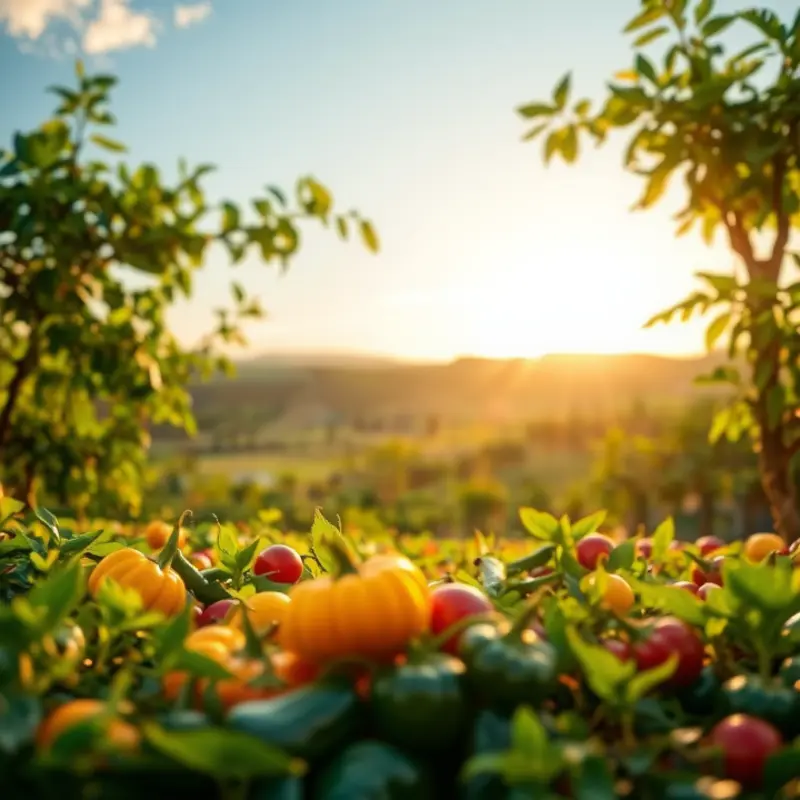As awareness of environmental issues rises, individuals are increasingly seeking ethical sources for the foods they consume, including sugar. Recognizing the impact of sugar production on ecosystems and communities can guide more sustainable choices. Ethical sugar sourcing isn’t just about the type of sugar but also about the methods and practices involved in its production. This guide will delve into the fundamentals of ethical sugar sourcing and provide actionable insights for making conscious decisions that benefit both health and the planet.
Understanding the Issues: Sugar’s Environmental Impact

Exploring the Environmental Concerns Linked to Sugar Production
Sugar production leaves a significant mark on the environment. One of the most pressing issues is deforestation. Large swathes of forests are cleared to create sugarcane plantations, resulting in biodiversity loss. Rainforests, often called the lungs of our planet, are especially vulnerable. Their destruction not only reduces carbon sequestration but also endangers countless species.
The rampant clearing of land for sugarcane has far-reaching impacts on ecosystems. For instance, clearing biodiverse regions disrupts habitats, leading to species decline or extinction. The flora and fauna that depend on these environments are forced to adapt or perish, often leading to irreversible ecological changes.
Sugar production also contributes significantly to carbon emissions. The burning of sugarcane fields before harvest is a common practice, which releases large quantities of carbon dioxide into the atmosphere. Additionally, the transportation and refining of sugar increase the industry’s carbon footprint.
Chemical pesticide and fertilizer use in sugar farming further exacerbates environmental damage. These chemicals can seep into local waterways, contaminating water supplies and threatening aquatic life. This not only disrupts ecosystems but also poses health risks to nearby communities. There is a direct link between sugar farming and the deterioration of water quality.
Water consumption is another critical concern. Sugarcane is a water-intensive crop, requiring substantial amounts of water during its growth. This demand strains freshwater resources, particularly in regions where water scarcity is already a concern. Over-extraction of water for irrigation purposes can lead to depleted water tables and adverse effects on local agriculture.
Labor practices in the sugar industry also deserve attention. Many sugar workers endure poor working conditions with minimal rights or protections. Ethical sourcing of sugar includes supporting producers who prioritize fair labor practices and sustainable farming approaches.
Choosing ethical sources of sugar represents a step towards mitigating these environmental issues. Supporting sustainable and transparent production methods can drive positive change. By prioritizing eco-friendly and socially responsible sugar, consumers can reduce the demand for environmentally harmful practices.
Incorporating eco-friendly cooking habits can play a significant role in reducing the overall carbon footprint associated with sugar consumption. For more insights on sustainable cooking practices, you can explore this guide on eco-friendly cooking habits.
Understanding the detrimental impact of conventional sugar farming on ecosystems highlights the importance of informed consumer choices. By embracing eco-conscious selections, consumers can contribute to reducing deforestation, preserving biodiversity, and promoting sustainable water use.
Choosing Wisely: How to Select Ethical Sugar Products

Selecting sugar products that align with ethical principles involves mindful scrutiny and conscious choices. Understanding labels, supporting fair trade, and choosing organic options are key steps to making sustainable decisions. Start by examining labels carefully. Look for certification marks that indicate compliance with ethical standards, such as ‘Fair Trade’ and ‘Organic.’ These labels ensure that producers are paid fairly, work in safe conditions, and that the environmental impact is mitigated.
Supporting fair trade is an impactful way to advocate for social justice and environmental sustainability. Fair trade systems aim to shift profits towards farmers and workers in developing countries, empowering them and fostering community development. When you purchase fair trade sugar, you contribute to a cycle that promotes equitable trade conditions. Engaging with fair trade ensures that your money supports living wages and ethical labor practices.
Organic sugar, another important consideration, is sourced from cane or beets grown without synthetic pesticides and fertilizers. Organic farming methods are beneficial for the soil, enhance biodiversity, and reduce toxic runoff into water bodies. By opting for organic sugar products, you endorse farming practices that nurture the environment and cultivate healthier ecosystems.
In addition to traditional sugars, consider integrating alternative sweeteners into your diet. These alternatives, such as coconut sugar or stevia, offer a more sustainable and often healthier option. Coconut sugar, for instance, boasts a lower glycemic index, contributing to stable blood sugar levels. Stevia, a plant-based sweetener, provides flavor without contributing calories, making it a popular choice among health-conscious consumers.
These alternatives typically require fewer resources to produce compared to conventional cane sugar, resulting in a smaller environmental footprint. Transitioning to alternative sweeteners diversifies your sugar sources and supports sustainable agriculture practices. For those interested in incorporating more eco-friendly cooking habits, you can find insightful tips here.
Your purchasing decisions wield the power to instigate significant change. Every ethically sourced sugar product purchased nudges the industry towards sustainability. These choices contribute to a market that respects both human rights and the planet. Be proactive in your pursuit of ethical consumption. Demand transparency from producers, prioritize ethically certified products, and explore innovative sweetener alternatives.
Ultimately, the journey towards responsible sugar consumption reflects a deeper commitment to safeguarding our planet and ensuring fair treatment for all involved in the supply chain. As you refine your sugar selections, remember that each small choice leads to a broader impact, promoting a healthier, more equitable world.
Final words
Making ethical sugar choices is a crucial step toward supporting the environment and promoting fair practices in agriculture. By understanding the impact of conventional sugar production and exploring sustainable alternatives, you can contribute to a more environmentally friendly food system. Each small change you make has the potential to ripple out, influencing not only your health but also that of farmers, ecosystems, and future generations. Together, as conscious consumers, our decisions can drive positive change in the world of food.








